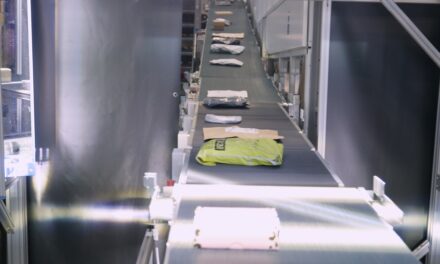
Postcomm: Royal Mail must reduce costs further (UK)
Nigel Stapleton, Chairman of Postcomm the UK postal industry regulator, said that Royal Mail must make greater efforts to become more competitive and not look to Postcomm for a relaxation of price regulation.
In the 2007/2008 annual report, Mr Stapleton said that most people firmly believe that mail can hold its own, despite the rise in email and internet use, but that all mail operators need to raise their game in terms of price competitiveness, service quality and product innovation.
He said that the GBP 100 million loss on the universal service was of great concern as well as the break-even position overall from its addressed letters business. He said Postcomm had relaxed a key feature of the current price control, thereby allowing bigger increases to the prices of certain products where currently prices are below their fully allocated costs. Postcomm was also minded to suspend during 2007/08, the compensation that would otherwise be due from Royal Mail to its customers when quality of service drops below the licence standards. However, he said that Royal Mail needed to be more innovative and reduce costs further to retain customers:
He drew attention to sporadic industrial action in 2007, saying that two thirds of the total working days lost in the UK through strikes were attributable to the series of stoppages at Royal Mail while the company sought to gain support from its workforce for the initiatives required to become more cost competitive.
On an optimistic note, he pointed out that more mail users are now being offered a choice of using either Royal Mail or one of the new entrants to the market. Nigel Stapleton, Chairman of Postcomm the UK postal industry regulator, said that Royal Mail must make greater efforts to become more competitive and not look to Postcomm for a relaxation of price regulation.
In the 2007/2008 annual report, Mr Stapleton said that most people firmly believe that mail can hold its own, despite the rise in email and internet use, but that all mail operators need to raise their game in terms of price competitiveness, service quality and product innovation.
"Royal Mail is however, not well placed to cope with these challenges because of the legacies of under investment in its network, a huge pension deficit that adds still more to its cost base and a culture that does not easily embrace innovation."
He said that the GBP 100 million loss on the universal service was of great concern as well as the break-even position overall from its addressed letters business. He said Postcomm had relaxed a key feature of the current price control, thereby allowing bigger increases to the prices of certain products where currently prices are below their fully allocated costs. Postcomm was also minded to suspend during 2007/08, the compensation that would otherwise be due from Royal Mail to its customers when quality of service drops below the licence standards. However, he said that Royal Mail needed to be more innovative and reduce costs further to retain customers:
"Royal Mail believes that Postcomm should be doing still more to help secure the universal service either by relaxing price regulation further still, or by acting on what it sees to be the unfair aspects of Access competition. However, given the increasing customer resistance to higher prices, we believe that Royal Mail’s problems can only be resolved through urgent and rigorous action on Royal Mail’s part, both to reduce costs, and to introduce new products which will position mail more strongly in the digital world."
"Access competitors have won upstream business from Royal Mail by virtue of their superior efficiency and it can be demonstrated that they are neither ‘cream-skimming’ Royal Mail’s most profitable business nor failing to pay a fair price for delivery over the final mile. So we can see no justification for reining back on the development of mail competition, when thus far it has secured tangible benefits for so many mail users and has provided the main impetus behind Royal Mail’s efforts to improve efficiency and quality of service."
He drew attention to sporadic industrial action in 2007, saying that two thirds of the total working days lost in the UK through strikes were attributable to the series of stoppages at Royal Mail while the company sought to gain support from its workforce for the initiatives required to become more cost competitive.
On an optimistic note, he pointed out that more mail users are now being offered a choice of using either Royal Mail or one of the new entrants to the market.
"In 2007/08,a fifth of all mail volumes were collected from the customer and handled upstream by another operator, with Royal Mail still delivering almost all mail over the last mile. Although initially these new Access operators have focused only on the larger mail users, they have recently installed sortation equipment which should allow them to offer a choice for smaller businesses which are also significant users of mail. Feedback from these customers shows a high level of satisfaction with the new service providers and independent research has concluded that competition in the bulk mail market has kept prices around 5 pct lower than they would otherwise have been."
"With Royal Mail still delivering more than 99 pct of addressed letters over the final mile it is apparent that delivery competition has, as yet, hardly developed and we believe that it is unlikely to do so while other operators remain so much disadvantaged by Royal Mail’s VAT exempt status." he said.











